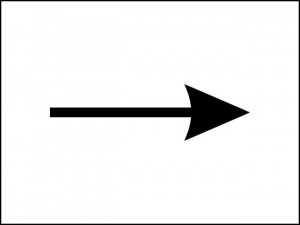Beyond Kanner and Asperger – Part 4
November 8th, 2015 by drcoplan Doctor Coplan continues his discussion of his revolutionary way of looking at ASD.
Beyond Kanner and Asperger – Part 4
In this post I will begin to address items 3 and 4 on my list of basic principles:
-
General Intelligence (IQ) is a separate property from atypicality.
-
Atypicality of any degree can co-exist with any level of general intelligence.
The definition of autism is silent on the subject of intelligence. On the one hand, this is as it should be; ASD is defined by impaired social skills, impaired pragmatics and prosody (communication and speech inflection), repetitive thoughts and behaviors, and unusual sensorimotor traits, not impaired intelligence. On the other hand, long-term outcome for a child with ASD has everything to do with intelligence. Numerous follow-up studies (reviewed in Appendix II of my book have reinforced the truth of Bartak and Rutter’s initial observation.[1]
Philosophers and psychologists have argued for thousands of years over how to define and measure “intelligence.” It would be nice if we could sidestep that question, and say that we will use IQ, as measured by a standardized test of intelligence, as our benchmark. However, life is not that simple. The grand paradox of IQ testing is that the instruments themselves have been developed and refined based on normal subjects, but then they are used on persons with special needs – a population they were never designed to serve. If administered strictly “by the book,” this can be manifestly unfair for people who are highly skilled, but “differently-abled.” In fact, IQ testing of persons with special needs is an art form all its own. The examiner starts with the standard tools, but the means of administration and the choices of which items to include in the final score must be adapted to the situation. For example, persons with ASD typically have strong rote memory skills but limited social reasoning ability. The examiner needs to avoid “inflator scores” on IQ testing that simply tap rote memory. By the same token, the examiner may opt to exclude tasks that hinge on social reasoning (the “Comprehension” task on the WISC is a good example) from the final IQ score. (The same discrepancy plays itself out during academic achievement testing: the child with ASD may have superior decoding skills – the ability to convert the printed word to speech – but extremely weak reading comprehension. This pattern gets its own name: hyperlexia. Many children with ASD do relatively well academically in Kindergarten, 1st, and 2nd grade, cruising along on the strength of their strong rote memory. Their ships run aground in 3rd grade, when the academic curriculum shifts from rote memorization of basic facts, to tasks that require comprehension and inference.) Read the rest of this entry »














